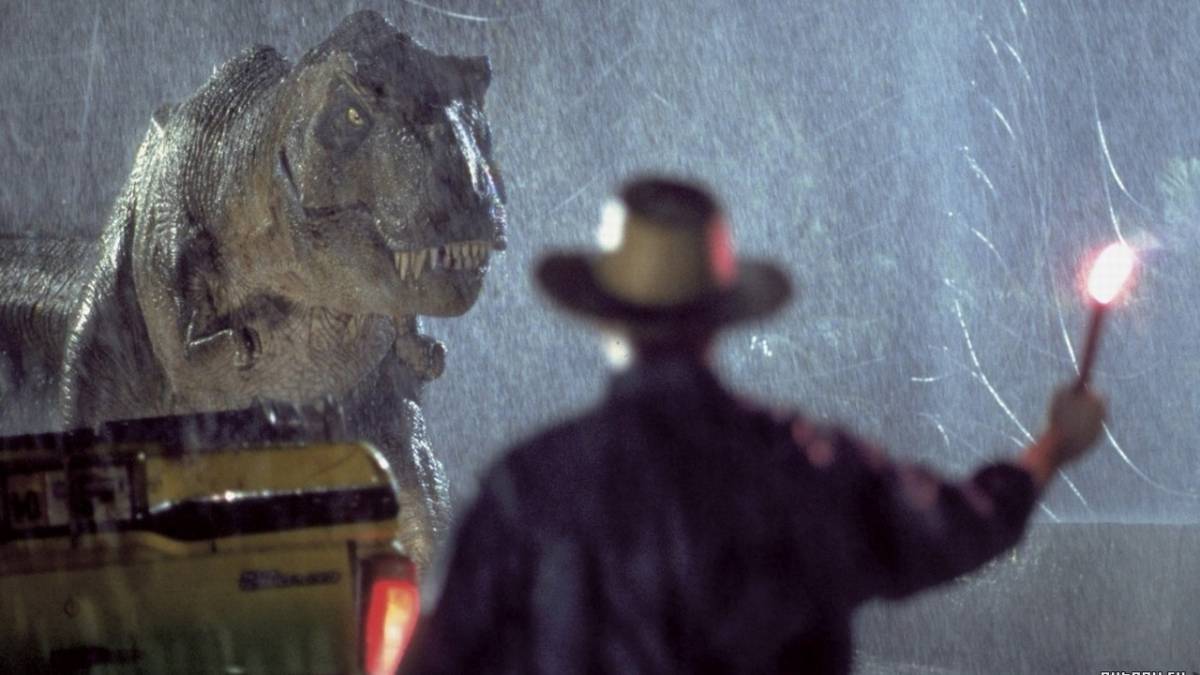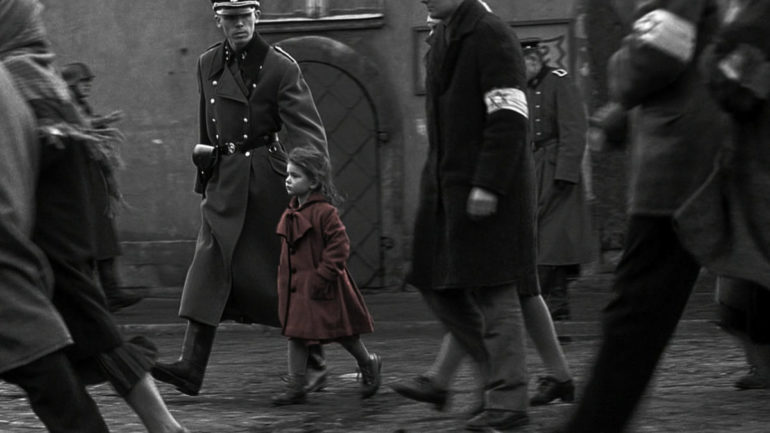No director has made quite as much impact on modern cinema as the famous Steven Spielberg. Unlike many filmmakers, Spielberg’s name is known throughout the world, splashed across movie posters with the same amount of status as an A-list Hollywood actor.
Spielberg is generally a family-friendly filmmaker, with his hand in many successful franchises. As a prominent figure of New Hollywood, Spielberg played a huge role in creating the ‘Summer Blockbuster’ and merchandising movies, starting with Jaws in 1975.
Who is he?
Steven Spielberg, also known as “The King of Entertainment”, is a major Hollywood filmmaker from Ohio. After an unpaid internship at Universal Studios as a student, Spielberg dropped out of college to direct small television productions. His debut feature, The Sugarland Express (1974), rewarded Spielberg with critical praise. Ever since, he’s been impressing audiences of all ages, with children and adults alike enjoying the whimsical adventures of his lengthy filmography.
Style and Auteurship
Spielberg adheres to no singular genre, famously directing the fantasy adventure movie Jurassic Park the same year as the tragic war drama Schindler’s List in 1993. But what can be said is Spielberg’s love for spectacle and escapism. From Indiana Jones (1981-2021) to The Goonies (1985), Spielberg has always taken viewers on fantastical journeys, exploring the murky depths of the ocean, the frontlines of battle or the vast infinities of space.
Spielberg’s action-packed tales are particularly successful for their ability to capture the human in otherworldly landscapes. Long tracking shots, themes of childhood and an illustrious score by John Williams places the supernatural among the ordinary, tugging at our heartstrings while embroiling us in a sense of awe and wonder.
Spielberg’s Best Movies

Indiana Jones and the Raiders of the Lost Ark (1981)
As the first of four instalments, Indiana Jones and the Raiders of the Lost Ark marks the beginning of one of the most successful franchises in cinema. Harrison Ford plays an archaeologist professor who harbours a secret double life as a treasure hunter. Smart, handsome and fearless (besides, of course, for snakes), Indiana Jones is the embodiment of the typical charismatic adventurer, not too far from the likes of a superhero.
Indiana Jones and the Raiders of the Lost Ark is arguably the best of the series, following Jones as he fights off a group of Nazis from claiming an ancient religious relic. Booby traps, battle sequences and master plans litter Spielberg’s action movie, making it a wild ride from start to finish.
A.I. Artificial Intelligence (2001)
Initially developed by Stanley Kubrick, who requested Spielberg direct the film while he produced it, A.I Artificial Intelligence is loosely inspired by Brain Aldiss’s short story Supertoys Last All Summer Long (1969). The sci-fi tale is set on a dystopian earth, where global warming has forced the invention of humanoid robots. One of these robots is David – a child who is programmed to replace the deceased son of two grieving parents.
The critical consensus on Rotten Tomatoes accurately describes the movie as an “amalgamation of Kubrick’s chilly bleakness and Spielberg’s warm-hearted optimism.” Starring Haley Joel Osment and Jude Law, A. I. Artificial Intelligence exercises Spielberg’s unique ability to find the human in everything (even robots), raising some poignant questions on modern technology.
Close Encounters of the Third Kind (1977)
Close Encounters of the Third Kind is up there with the best sci-fi movies ever made. An illustrious spectacle that dazzled audiences during the 70’s, Close Encounters of the Third Kind balances its grandiose special effects with grounded characters and emotive plot.
The pacing may take its time, building the tension before the big Spielberg finale, but it’s worth the wait. Richard Dreyfuss, Melinda Dillon, Teri Garr and even François Truffaut lead in a story about people trying to contact alien life forces. Its cosmological themes and creative imagination make it a Spielberg classic, using a real Air Force hangar to film the famous final scene.
Jurassic Park (1993)
Special effects have had many landmark moments with the evolution of technology, but few are as prominent as the SFX of Jurassic Park. Although the dinosaur models may look less convincing nowadays, audiences of the 90s were blown away by the realistic depiction of a giant T-Rex, amplifying the thrill of Spielberg’s fantasy adventure.
Sam Neill, Laura Dern, Jeff Goldblum and Richard Attenborough are cast to face up against the bioengineering of real dinosaurs designed to live in a new theme park. Unfortunately, they don’t get far past the trial phase when chaos breaks loose. Due to the enormous success of Spielberg’s roller-coaster of a movie, Jurassic Park sparked a franchise of four more sequels, with a fifth in the making (though Spielberg will not be directing).
Saving Private Ryan (1998)
Spielberg has directed a handful of war movies, with one of the most successful being Saving Private Ryan. With an iconic opening sequence that dives into the nitty-gritty of the Invasion of Normandy, Saving Private Ryan traces the lives of seven soldiers, tasked with finding the only surviving son of a bereaved mother during World War II.
Spielberg’s epic war movie never holds back on the gore or graphics of the frontlines, with Tom Hanks, Matt Damon, Tom Sizemore and Edward Burns delivering exceptional performances. Despite its bleak setting, Saving Private Ryan is a powerhouse of hope and determination, partially based on the real-life saving of Fritz Niland.
E.T. the Extra Terrestrial (1982)
Heart-warming themes of friendship and courage occur in all of Spielberg’s films, most prominently in E.T. the Extra Terrestrial. Often referred to as simply “E.T.”, the universally loved movie received nine Oscar nominations and won four of them – including Best Visual Effects. Spielberg takes the epic scope of space movies and domesticates them, placing a strange alien being in an ordinary suburban home.
E.T. was an immediate blockbuster, ranking as one of the best sci-fi movies ever made. But for all its wondrous effects and funny moments, what’s really at the core of E.T. is the friendship between the adorable alien and a young boy, played by a Henry Thomas. When E.T. is stranded on Earth, it’s up to the kids to get him home, as the adults threat to use him for scientific experiments.
Schindler’s List (1993)
The black-and-white movie that brings even the hardiest of viewers to tears, Schindler’s List recounts the true story of Oskar Schindler, who saved 1,200 Jews from being admitted into a concentration camp. Liam Neeson and Ben Kingsley deliver heart-wrenching performances alongside Ralph Fiennes who embodies the true nature of evil as a ruthless Nazi officer.
Schindler’s List resists the sugar-coating most Western war movies fall into, while still inspiring audiences that good can be found in even the darkest of places. John Williams composed the memorably enchanting score, and the single use of the colour red became an iconic symbol of remembrance. Schindler’s List may not be the family-fun blockbuster Spielberg is known for, but it certainly an important piece of history.
Jaws (1975)
Effectively the first summer blockbuster ever made, Jaws solidified Spielberg’s reputation as a culturally significant filmmaker. Experimentation with different cinematic techniques – such as the contra zoom and use of sound effects – made Jaws an unexpected hit, based on Peter Benchley’s 1974 novel of the same name.
As you can probably guess from the title, Jaws tells the story of a killer shark, who attacks an island in New England. The film score is now ranked as the sixth best by the American Film Institute, with an alternating pattern of two single notes becoming the most terrifying sound to grace audience’s ears. Roy Scheider, Richard Dreyfuss and Robert Shaw star in this classic shark horror that influenced an entire generation of filmmakers to follow New Hollywood.
With such an extensive filmography, it’s difficult to pick out just eight of Spielberg’s movies. So, here’s a few honourable mentions:
The Goonies (1985), Hook (1991), The Colour Purple (1985), Empire of the Sun (1987), Lincoln (2012), War Horse (2011), Munich (2005), Catch Me If You Can (2002), War of the Worlds (2005), Minority Report (2002)
Some of the coverage you find on Cultured Vultures contains affiliate links, which provide us with small commissions based on purchases made from visiting our site.

